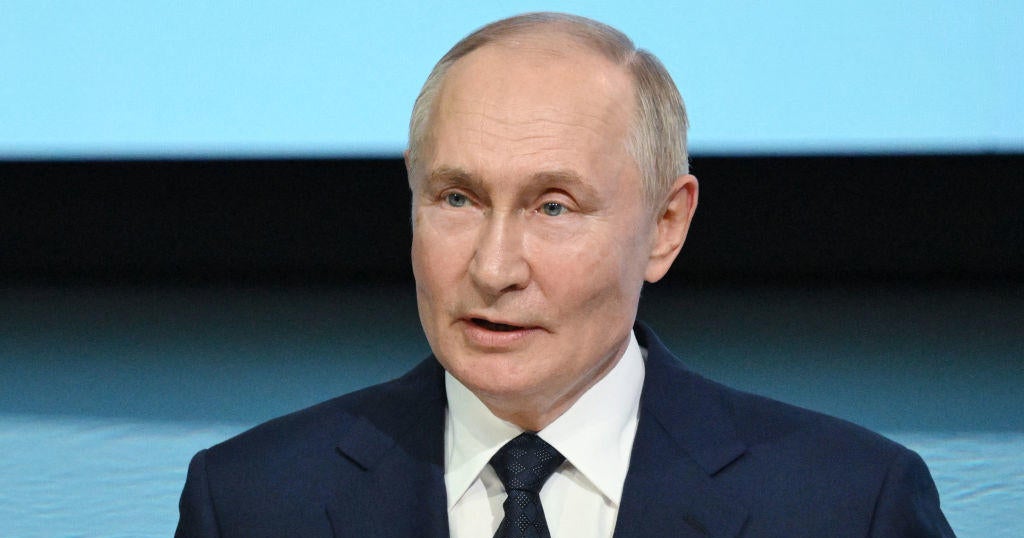CBS News
New Mexico city reaches $20 million settlement in death of woman fatally shot by officer

A city in New Mexico has reached a $20 million settlement with the family of a woman who was shot and killed by a police officer now charged with second-degree murder.
Teresa Gomez, 45, was fatally shot in October 2023 shortly after a Las Cruces police officer on a bicycle approached her while she sat in a parked car with another person, authorities said. Body camera video shows the officer shot Gomez three times as she tried to drive away.
The officer, identified by the city as Felipe Hernandez, was charged in January and fired months later from the Las Cruces Police Department.
“This settlement should be understood as a statement of the City’s profound feeling of loss for the death of Gomez and of the City’s condolences to her family,” the city of Las Cruces said in a news release sent Friday.
Hernandez has pleaded not guilty to the murder charge. His trial is scheduled for June 2. The Associated Press sent an email Saturday seeking comment from Hernandez’s attorney.
A lawyer for the Gomez family said her relatives are grateful to the city “for recognizing the injustice of Teresa’s death,” the Las Cruces Sun-News reported.
“They trust that the city will redouble efforts to make sure no other family suffers the tragedy of losing a loved one to abusive police conduct,” Shannon Kennedy said in a statement to the newspaper.
CBS News
North Dakota Badlands national monument proposed with tribes’ support

A coalition of conservation groups and Native American tribal citizens on Friday called on President Joe Biden to designate nearly 140,000 acres of rugged, scenic Badlands as North Dakota’s first national monument, a proposal several tribal nations say would preserve the area’s indigenous and cultural heritage.
The proposed Maah Daah Hey National Monument would encompass 11 noncontiguous, newly designated units totaling 139,729 acres in the Little Missouri National Grassland. The proposed units would hug the popular recreation trail of the same name and neighbor Theodore Roosevelt National Park, named for the 26th president who ranched and roamed in the Badlands as a young man in the 1880s.
“When you tell the story of landscape, you have to tell the story of people,” said Michael Barthelemy, an enrolled member of the Mandan, Hidatsa and Arikara Nation and director of Native American studies at Nueta Hidatsa Sahnish College. “You have to tell the story of the people that first inhabited those places and the symbiotic relationship between the people and the landscape, how the people worked to shape the land and how the land worked to shape the people.”
The U.S. Forest Service would manage the proposed monument. The National Park Service oversees many national monuments, which are similar to national parks and usually designated by the president to protect the landscape’s features.
Supporters have traveled twice to Washington to meet with White House, Interior Department, Forest Service and Department of Agriculture officials. But the effort faces an uphill battle with less than two months remaining in Biden’s term and potential headwinds in President-elect Trump’s incoming administration.
If unsuccessful, the group would turn to the Trump administration “because we believe this is a good idea regardless of who’s president,” Dakota Resource Council Executive Director Scott Skokos said.
Dozens if not hundreds of oil and natural gas wells dot the landscape where the proposed monument would span, according to the supporters’ map. But the proposed units have no oil and gas leases, private inholdings or surface occupancy, and no grazing leases would be removed, said North Dakota Wildlife Federation Executive Director John Bradley.
The proposal is supported by the MHA Nation, the Spirit Lake Tribe and the Standing Rock Sioux Tribe through council resolutions.
If created, the monument would help tribal citizens stay connected to their identity, said Democratic state Rep. Lisa Finley-DeVille, an MHA Nation enrolled member.
North Dakota Gov. Doug Burgum is Trump’s pick to lead the Interior Department, which oversees the National Park Service. In a written statement, Burgum said: “North Dakota is proof that we can protect our precious parks, cultural heritage and natural resources AND responsibly develop our vast energy resources.”
North Dakota Sen. John Hoeven’s office said Friday was the first they had heard of the proposal, “but any effort that would make it harder for ranchers to operate and that could restrict multiple use, including energy development, is going to raise concerns with Senator Hoeven.”
CBS News
11/23: Saturday Morning – CBS News

Watch CBS News
Be the first to know
Get browser notifications for breaking news, live events, and exclusive reporting.
CBS News
Russia bans adoption of its children from countries that allow gender transition

Russian President Vladimir Putin on Saturday signed into law a bill banning adoption of Russian children by citizens of countries where gender transitioning is legal.
The Kremlin leader also approved legislation that outlaws the spread of material that encourages people not to have children.
The bills, which were previously approved by both houses of Russia’s parliament, follow a series of laws that have suppressed sexual minorities and bolstered longstanding conventional values.
Russian lower house Speaker Vyacheslav Volodin, who was among the new bill’s authors, said in a Telegram post in July that “it is extremely important to eliminate possible dangers in the form of gender reassignment that adopted children may face in these countries.”
The adoption ban would apply to at least 15 countries, most of them in Europe, and Australia, Argentina and Canada. Adoption of Russian children by U.S. citizens was banned in 2012.
Other bills approved Saturday ban what they described as propaganda for remaining child-free and impose fines of up to 5 million rubles (about $50,000). Its proponents contended that public arguments against having children are part of purported Western efforts to weaken Russia by encouraging population decline.
Putin and other top officials in recent years have increasingly called for observing so-called traditional values as a counter to Western liberalism. As Russia’s population declines, Putin has made statements advocating large families and last year urged women to have as many as eight children.
Russia last year banned gender-transition medical procedures and its Supreme Court declared the LGBTQ+ “movement” to be extremist.
In 2022, Putin signed a law prohibiting the distribution of LGBTQ+ information to people of all ages, expanding a ban issued in 2013 on disseminating the material to minors.
Since he sent troops into Ukraine in February 2022, the Kremlin leader has repeatedly characterized the West as “satanic” and accused it of trying to undermine Russia by exporting liberal ideologies.
Independent journalists, critics, activists and opposition figures in Russia have come under increasing pressure from the government in recent years, intensifying significantly amid the conflict in Ukraine. Hundreds of nongovernmental groups and individuals have been designated as a “foreign agent” — a label that implies additional government scrutiny and carries strong pejorative connotations.









